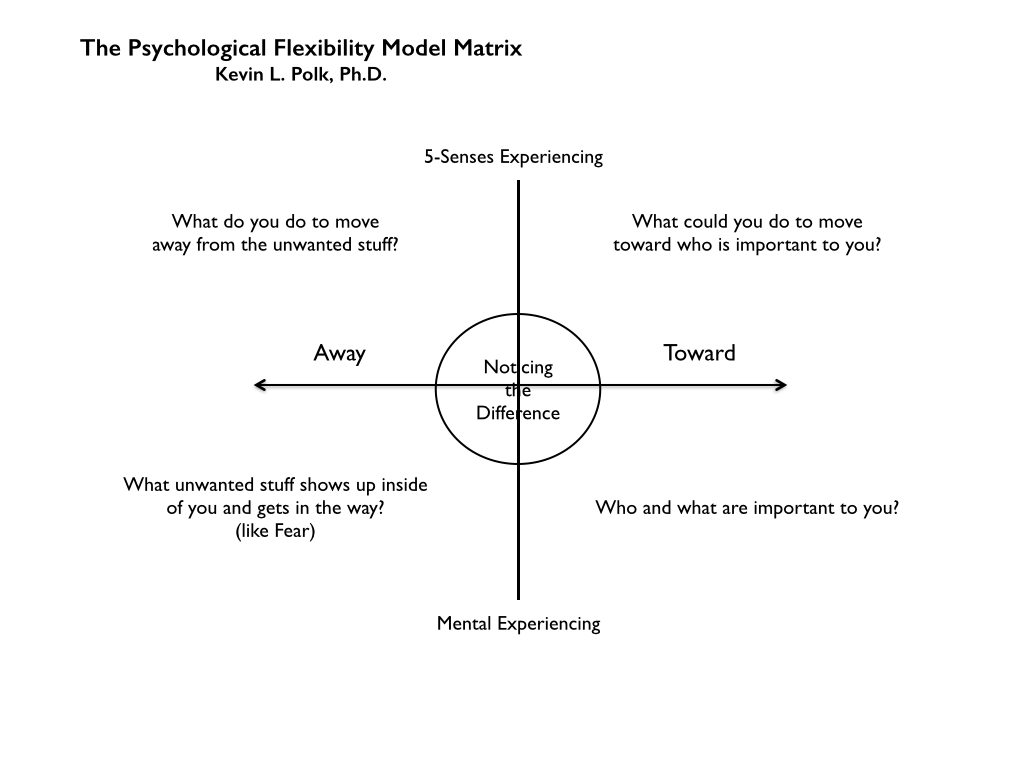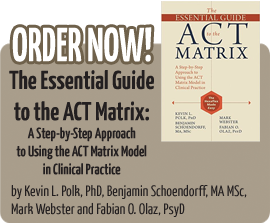Hi folks,
Today I answered a a question on a listserv about training of “Warm Line” staff. That is, they take telephone calls from troubled people, but most often not suicidal callers who are in need of a listening ear. (The staff of course screen for serious problems and refer those calls.) The time limit for warm calls is usually ten minutes. For many reasons, such Warm Lines are NOT in the business of giving advice. As you can see by my response below, the four questions outlined in the matrix diagram create a nice framework for doing this kind of work.
Click Here for my training schedule.
—————————————
The warm line you supervise sounds very ACTy. I have done some training with two such services. The diagram I’m sort of known for (the matrix, which is nothing more than two crossed lines that form four quadrants) comes down to four questions that can quickly get one into an ACT stance.
Who and what are important to you? (lower right quadrant)
What shows up inside of you and at times gets in the way of moving toward who and whats important to you? (lower left)
What behaviors do you do to move away from the unwanted stuff? (upper left)
What behaviors could you do to move toward who and what’s important? (upper right).
Once warm line staffers know that basic point of view and questions, then it’s easy for them to talk from that point of view. For example,
“It sounds like _________ is important to you and _________ is showing up and getting in the way.”
“You describe doing _________ behavior, is that to try and lessen the _______ ? (something from the lower left quadrant).
“You talked about doing ________, it sounds like _________ are important to you.”
Staffers discover there are an endless supply of such questions based on this point of view and four basic questions.
Notice that all of these are perspective taking questions, having the person ‘step back’ and look at experience from a slightly shifted and ACTy point of view. No advice is given, just these invitations to look back on the self. The questions give callers a bit of cognitive space to express themselves and get support.
We have found that just that little shift in point of view can make a lot of difference.
Many staff have reported that doing calls from this point of view is very rewarding.
Warmly,
Kevin





Leave a Reply